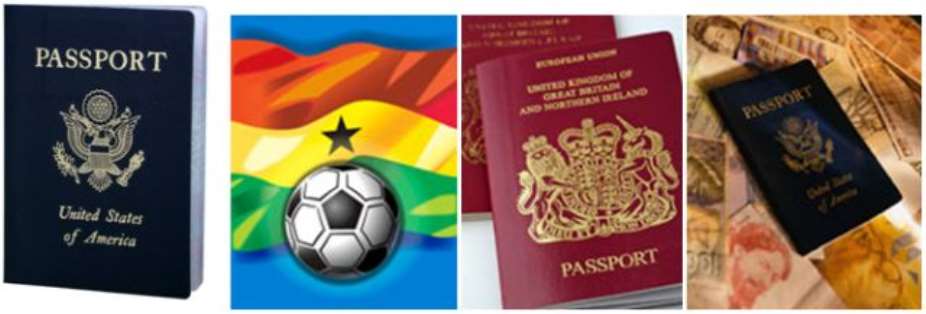According to Therise Khan-dual citizenship comes with insecurity because of how the country and its citizens view it, and in so doing, creates a paradox of dual citizenship, a fractured sense of belonging spurred by both the personal and political. It is well documented that the Constitution of Ghana prevents a Ghanaian who happens to be a dual citizen to enjoy the rights of political citizenship with emphasis on running for parliamentary office or in other words member of parliament (MP). As stated in our Constitution "a person shall not be qualified to be a Member of Parliament if he or she owes allegiance to a country other than Ghana."
Supporters against dual citizens to run for political office in this case becoming a member of parliament argue that dual citizens may have divided loyalties which could potentially compromise national security. This argument is subject to debate. The question is how can a dual citizen if allowed to become an MP be a threat to national security in Ghana? I may agree with the argument that a dual citizen should not run for office of the president. However, when it comes to running for a parliamentary office, the restrictions should be removed to allow the dual citizen to participate in the political process.
It is well-documented that those who often engaged in espionage activities have most times been folks with singular nationality. For example, in November 1985, the United States CIA swapped a spy for 8 Ghanaians who helped the CIA. This case involved Michael Soussoudis accused of colluding with a CIA clerk to solicit information. As of today, the dual citizen does not have a voice in shaping the policies and decisions that affect our socio-economic lives. As to whether our Constitution should be amended to allow dual citizens to run for political office is a matter of debate. However, it is important to point out that the dual citizens form parts of the political community and their right to political citizenship shouldn’t be restricted. It is about time that we amend the constitution to allow dual citizens to participate in the political process with emphasis on parliamentary elections.
Interestingly, some Ghanaian lawmakers actively seek dual citizenship for their unborn children by giving birth overseas purposely to acquire foreign citizenship. Are we saying then that those MPs have no loyalty to their country just because they chose to give birth outside the country? Once again it is about time that we amend the constitution to allow the Ghanaian dual citizen to enjoy the full rights of political citizenship. If not, the issue of a dual citizenship would be described as a paradox of an apartheid political prejudice in Ghana.





 Election 2024: Govt illegally recruiting NPP footsoldiers into security services...
Election 2024: Govt illegally recruiting NPP footsoldiers into security services...
 Presidential convoy accident: Full list of injured victims
Presidential convoy accident: Full list of injured victims
 NIA to register children from age 6 to 14 from June 10
NIA to register children from age 6 to 14 from June 10
 Hon Joewise, Rafeal Opoku Adusei set aside differences, unite for 2024 victory i...
Hon Joewise, Rafeal Opoku Adusei set aside differences, unite for 2024 victory i...
 Voter registration: Election Watch Ghana accuse EC of using stolen BVRs to regis...
Voter registration: Election Watch Ghana accuse EC of using stolen BVRs to regis...
 Medikal's predicament is a typical example of why men must fear buttocks – Ste...
Medikal's predicament is a typical example of why men must fear buttocks – Ste...
 Payroll audit: GHS2.8 million found being paid to ‘ghost names’ in Northern regi...
Payroll audit: GHS2.8 million found being paid to ‘ghost names’ in Northern regi...
 Payroll audit: Non-existent school had staff who were being paid in Northern reg...
Payroll audit: Non-existent school had staff who were being paid in Northern reg...
 OSP, CAGD identifies, clears ‘ghost names’ on government payroll; saves Ghana ov...
OSP, CAGD identifies, clears ‘ghost names’ on government payroll; saves Ghana ov...
 Dr. Sam Ankrah urges Electoral Commission to address registration issues and pro...
Dr. Sam Ankrah urges Electoral Commission to address registration issues and pro...
